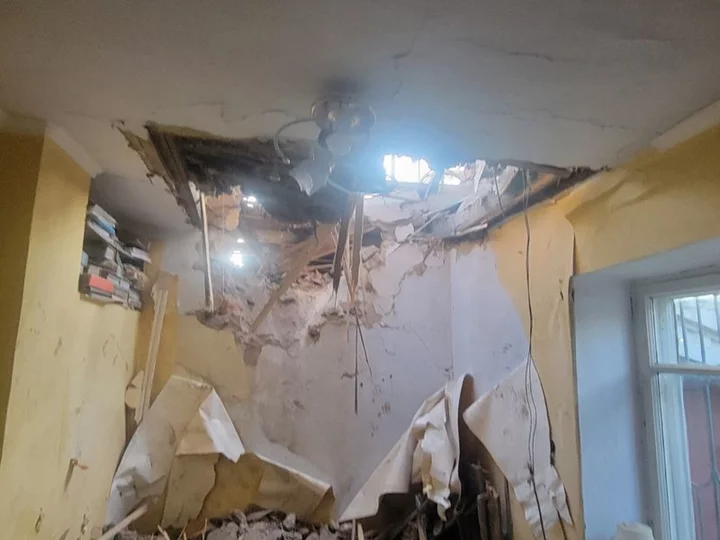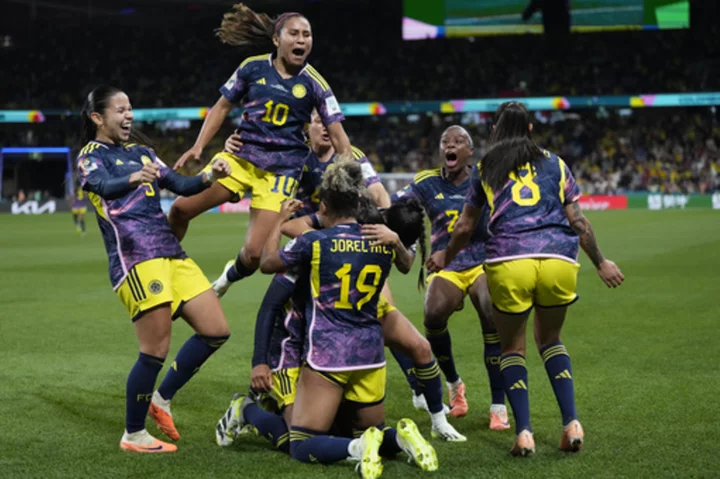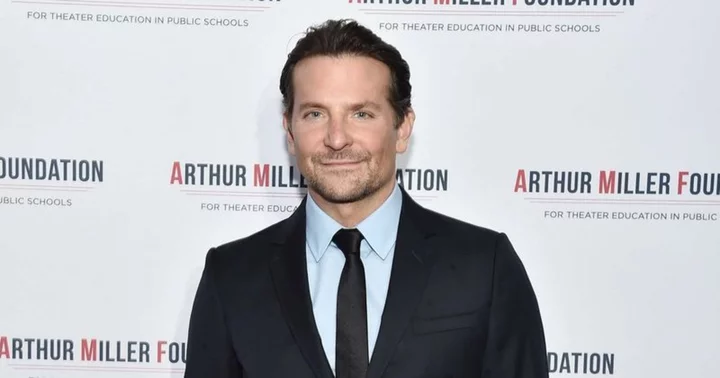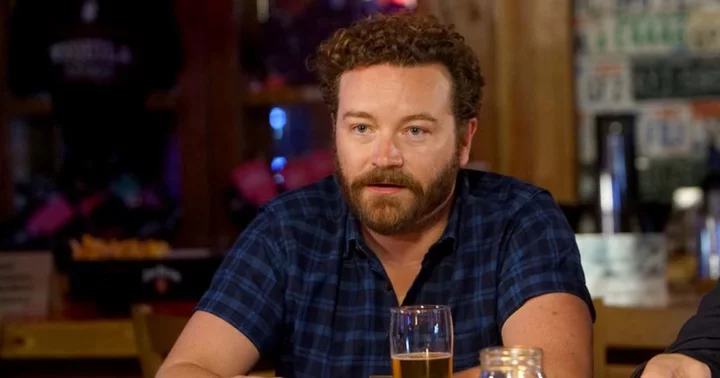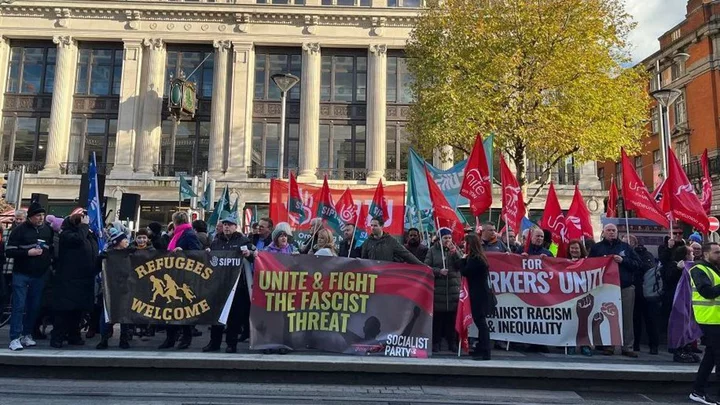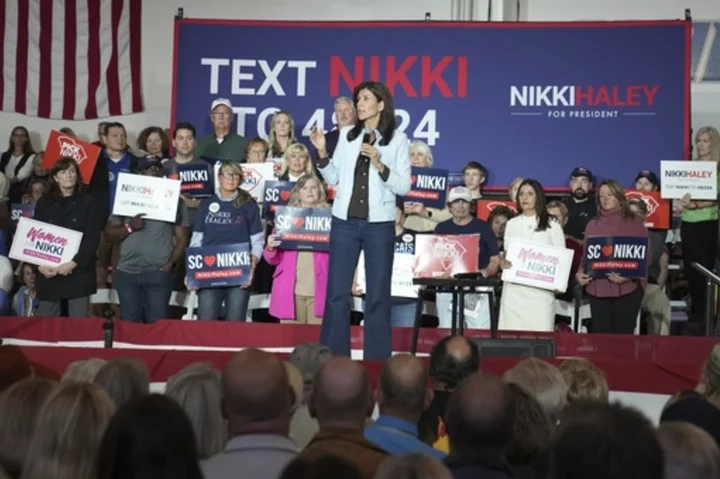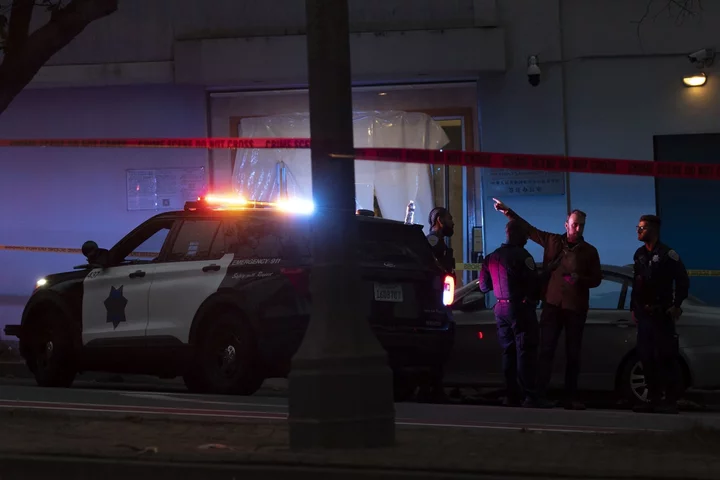The second Republican presidential debate in California next week will mark a new phase in the primary contest: Some candidates will start to feel a new level of pressure to drop out.
As of Thursday, six candidates have said they had qualified for the second debate, which will take place next Wednesday at the Ronald Reagan Presidential Library in Simi Valley: Florida Gov. Ron DeSantis, entrepreneur Vivek Ramaswamy, former South Carolina Gov. Nikki Haley, former Vice President Mike Pence, former New Jersey Gov. Chris Christie, and South Carolina Sen. Tim Scott. Two other candidates who participated in the first debate of the cycle -- North Dakota Gov. Doug Burgum and former Arkansas Gov. Asa Hutchinson -- had not said they had qualified for the debate. The far and away front-runner in the primary, former President Donald Trump, is opting to skip the debate again and instead do a prime time speech with current and former union members in Detroit.
For those on stage, the theme of the debate is resiliency, especially as a shrinking field increasingly becomes the uncomfortable truth. Even though Trump did not participate in the first debate, poll after poll since then has shown him with a dominant lead in the primary.
"That's exactly how the Republican world is looking at this debate -- it's a winnow-the-field moment," Republican strategist Cam Savage said. "Now obviously it will be somewhat winnowed (compared) to the last one just based on the conditions of entrants, but that's not really what people are talking about. What people are talking about is 'are any of these candidates going to break out and how is the field going to winnow?'"
Going into the first debate, the lesser-known candidates were hoping for a breakout moment and the windfall of attention and donations that usually comes with it. Ramaswamy and Haley, in particular, have been enjoying the polling bumps and donations that come with a standout performance.
But it's clear that staying in the primary will only get harder.
The criteria for even qualifying for the second debate are more restrictive. For a candidate to get on the debate stage, they need to have signed a pledge promising to back the eventual nominee of the 2024 Republican primary, hit 50,000 unique donors (a 10,000-donor increase from the first debate requirement) that includes a minimum 200 donors from 20 states and territories. Qualifying candidates also have to register at 3% in two national polls or the same level of support in one national poll and two polls from separate early nominating states -- Iowa, New Hampshire, South Carolina or Nevada. The deadline for candidates to qualify for the second debate is Monday night.
But beyond qualifying for the debate, strategists warn the window is closing for candidates to emerge as a Trump alternative, even those who continue to qualify for future debates.
"I wouldn't say oxygen is running out but obviously the clock is ticking. Obviously we're moving closer to January," said Republican strategist Jay Williams, a nod to when the Iowa Republican caucuses are set to take place.
Trump's rivals have been sharpening their attacks on the former president, seeking to contrast the president as unfit for the moment or out of step with the party on abortion. Those attacks haven't made much of a dent thus far into Trump's massive lead over the rest of the field.
That doesn't necessarily mean his lead will continue after this debate, but as time shrinks before the Iowa caucuses, it's apparent among candidates and strategists that time is running out in a less than ideal way for anyone besides Trump.
"Former President Trump continues to hold his position very firmly as the front-runner on the GOP side," Republican strategist James Hartman said. "I don't think that rules out potential surges from a select few of the remaining candidates."
Most of the contenders, after the first debate, have needed to consider whether they wanted to keep throwing money at bids that may not pan out, he noted.
"But I think some of them still have potential," he said.
Candidates are quick to admit the importance of being on the debate stage and the longterm consequences of being absent from it, including for Trump. While campaigning in New Hampshire on Thursday, Haley said it was a "mistake" for Trump to have skipped the first debate and dinged him for planning to also take a pass on the second one.
"He's not gonna be on the second debate stage," Haley said in Greenland, New Hampshire. "I think that's gonna hurt him. You can't win the American people by being absent. You just can't. The American people want you to fight for them."
Haley added, "You can't just not be on the debate stage because you're so high in the polls. You've got to show not what you did in the last four years, what are you gonna do in the next four."
The real danger for the candidates is to have a "backsliding" moment, Savage argued. DeSantis, for instance, can't afford to hover in the background of the debate as he did last time.
"I think there's a sense that in these high stakes debates, you're only as good as your last performance, so if anybody has a backsliding moment that could be the end for them," Savage said. "So, I don't think holding back if you're not DeSantis does you no good. He's more or less in second place despite the one poll that had Haley moving up. But in terms of the on-the-ground in the early states, it seems like DeSantis is perfectly in second place, so if you're not moving in that direction after this, the pressure is only going to build."
Among the sect of the Republican voters and donors who don't want to back Trump in 2024, there has been a hesitance to weigh in on the primary until a consensus alternative has emerged. So far, that hasn't happened. Savage said it's not clear that, even if one candidate does break out from the non-Trump pack, it will matter in the end.
"The one thing that's yet to be determined, and maybe it doesn't matter at all, is if there's consolidation of support, can that give strength and momentum to one of these candidates to make a real run at Trump. And if there's not that consolidation, then all you're doing is waiting on pins and needles to see if someone can beat him by three points in Iowa in January," Savage said. "There's five or six candidates. Nobody's going to break away from it. If someone's going to beat him they'll nip him."


